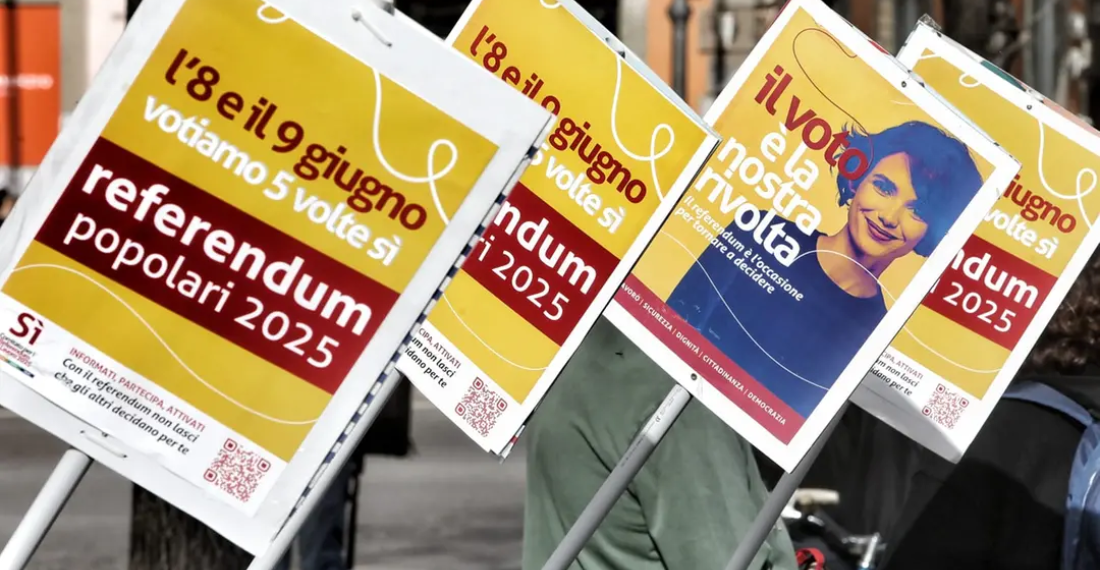Italians go to vote on 8 and 9 June in a referendum that is dividing the nation and will help define "Who is Italian".
Until the mid-19th century, Italy was "a mere geographical expression," divided into small states and parts occupied by foreign powers. Eventually, the Italian language brought people together, and the Italian state as we know it emerged by 1871.
In today's Italy, the question of who gets to be Italian is a sensitive one.
Large numbers of migrants and refugees arrive in the country each year helped across the Mediterranean from North Africa by smuggling gangs.
The national referendum on Sunday and Monday proposes halving the time required to apply for Italian citizenship.
Cutting the wait from 10 years to five would bring this country in line with most others in Europe.
The referendum was initiated by a citizens' initiative and is supported by civil society groups. But for such a referendum to be valid, 50% of all voters in Italy have to turn up.
Giorgia Meloni, the country's hard-right prime minister, has announced she will boycott the vote, declaring the citizenship law already "excellent" and "very open".
Other parties allied to her are calling on Italians to go to the beach instead of the polling station.
Meloni's populist government has made a big deal about cutting the number of arrivals.
But this referendum is aimed at those who have travelled legally for work to a country with a rapidly shrinking and ageing population.
The aim is limited: to speed up the process of getting citizenship, not ease the strict criteria.
"Knowledge of the Italian language, not having criminal charges, continuous residence et cetera - all the various requirements remain the same," explains Carla Taibi of the party More Europe, one of several backers of the referendum.
The reform would affect long-term foreign residents already employed in Italy: from those on factory production lines in the north to those caring for pensioners in plush Rome neighbourhoods.
Their children aged under 18 would also be naturalised.
Up to 1.4 million people could qualify for citizenship immediately, with some estimates ranging higher.
"These people live in Italy, study and work and contribute. This is about changing the perception of them so they are not strangers anymore - but Italian," argues Taibi.






